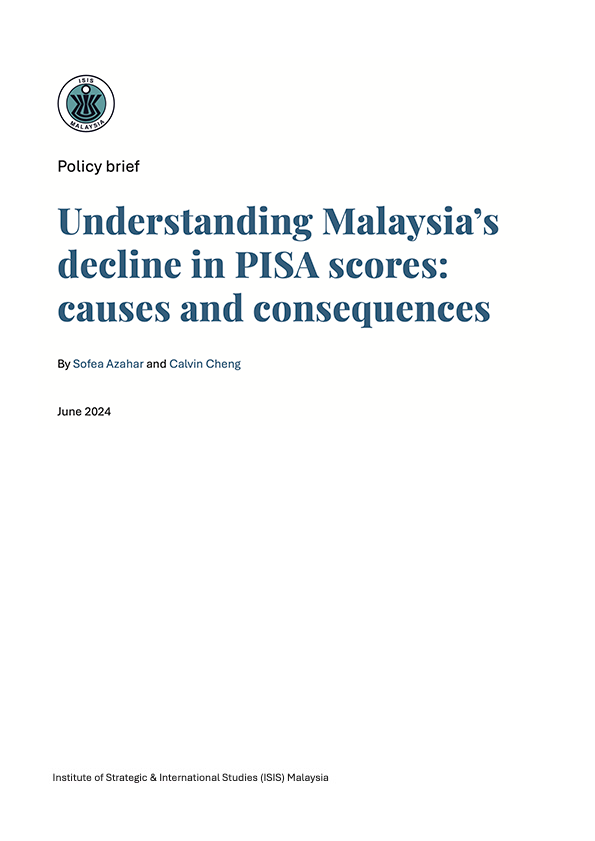Sofea Azahar is a former analyst at the Institute of Strategic & International Studies (ISIS) Malaysia. Her research interests centred on development economics, with an emphasis on human capital development and the implications of educational inequality. She holds an MSc in Development Studies from the London School of Economics and Political Science (LSE) and a degree in Economics from the University of Essex.
Calvin Cheng is a fellow in the Economics, Trade and Regional Integration programme at the Institute of Strategic & International Studies (ISIS) Malaysia. His research interests span issues in applied economics, centring around jobs, social protection, economic development and the design of social transfer programmes. He holds a MSc in Public Policy from the London School of Economics and Political Science (LSE) and a BEcon in Economics and Econometrics from Monash University in Clayton.
Key takeaways
- The 2022 PISA report reveals that Malaysia ranks among the top five countries in the world with the largest declines in test scores across all three core subjects: reading, mathematics and science. We estimate that these declines equate to nearly 1.6 years of lost learning in mathematics, reading (1.4 years) and science (1.1 years).
- Since 2015, Malaysia’s PISA scores have been on the decline, with average scores in all three subjects falling below the ASEAN-6 average in 2022. Our analysis suggests that Malaysia’s average PISA scores are slightly lower than expected for its income level – signifying potential future challenges with human capital development, productivity and economic growth.
- Four primary factors are likely to have contributed to these declines: (1) learning losses caused by pandemic-induced school closures and digital disparities; (2) a growing educational gap between public and private schools; and (3) deficiencies in education quality, capacity and support.
- To address these hurdles, policymakers must prioritise efforts to increase teaching capacity and quality, outlining a concrete action plan to make up for pandemic-induced learning losses and increasing educational equality.
- Policy efforts should focus on improving teaching capacity by allowing teachers more time to teach by reducing their non-teaching clerical tasks while improving teaching quality through streamlining existing professional development initiatives and improving selection mechanisms.
- To make up for learning losses from Covid-19, school administrators should accelerate the implementation of targeted learning programmes for at-risk and low-performing students beyond school hours. Additionally, these targeted educational interventions need to be paired with robust student psychosocial support systems within schools.
- Policymakers should also work to enhance digital inclusion and expand the digital capacity of public schools, including scaling up existing digital literacy programmes to bridge digital divides between more advantaged students and those from less-advantaged backgrounds. This should be complemented by measures to equalise prior-to-schooling determinants, such as broadening access to quality early childhood care and education.





